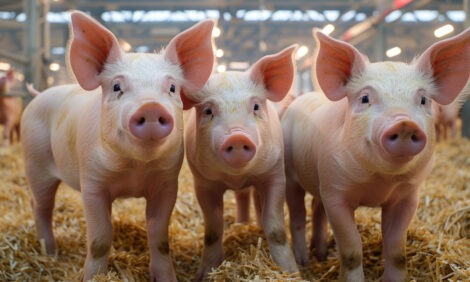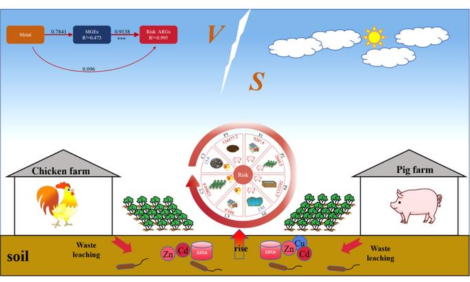



Ohio (US) legislators pass Feral Swine Bill, now urge Governor DeWine to sign into law
New bill would prohibit importing and hunting feral swine as well as outlawing garbage feeding of pigsIn another unanimous and bipartisan vote in the US State of Ohio, the Ohio Senate passed H.B. 503, known as the Feral Swine bill, 31-0 this week. This marks another milestone toward protecting Ohio agriculture against the massive disease and economic threat posed by non-native feral swine entering the state. This comes after the Ohio House voted 89-0 last June to do the same, meaning the legislation now only needs the governor’s signature to become effective.

The new legislation in summary
Department of Natural Resources: wild boar and feral swine
- Adds certain prohibitions to the wildlife law related to wild boar and feral swine, including prohibitions against:
- Importing, transporting, or possessing live wild boar or feral swine;
- Releasing wild boar or feral swine into the wild or expanding the range of a wild boar or feral swine by introducing the wild boar or feral swine to a new location; and
- Purposely feeding a wild boar or feral swine.
- Requires a person who knows or has reason to know that wild boar or feral swine are present on public or private property to report that fact to the Division of Wildlife.
- Establishes a process by which a person or the person’s agent may immediately eradicate wild boar and feral swine on the person’s property without a hunting license if the person or the person’s agent notifies the Division and follows Division instructions.
Department of Agriculture: feeding swine
- Eliminates the required annual license to feed treated garbage to swine and, instead, prohibits feeding any garbage to swine, included treated garbage.
- Prohibits a person from bringing into Ohio a swine that has been fed garbage or treated garbage.
- Retains the current definition of garbage, which generally includes all waste material derived in whole or in part from the meat of any animal.
- Revises the definition of “treated garbage,” which generally is edible garbage that has been heated and boiled in accordance with certain specifications, to remove a reference to individuals licensed to feed treated garbage to swine.
- Authorizes the Director to investigate violations of the above prohibitions and make inquiries into any alleged violation as are necessary to secure compliance with the law governing garbage-fed swine and orders issued under it.
- Allows the Director of Agriculture to assess a civil penalty against a person who violates the bill’s prohibitions regarding garbage-fed swine.
- Establishes the amounts of the civil penalties as follows:
- For a first violation, up to $500;
- For each subsequent violation, up to $1,000.

“On behalf of Ohio’s pig farmers, landowners, and many others in agriculture, we’re very pleased with this historic bipartisan vote by both houses as we now await Governor DeWine’s signature as the final act needed to allow this much-needed legislation to become law,” said Cheryl Day, executive vice president of the Ohio Pork Council. “We want to thank the tireless efforts of our bill sponsors Rep. Don Jones and Rep. Bob Peterson, along with Sen. Tim Schaffer. They all worked hard to help us get this bill passed so that our state’s farmers have more protection against costly foreign animal diseases. The nonpartisan, broad support we’ve seen only underscores the clear need to sign this legislation into law immediately.”
Beyond the reduced risk of animal disease, Day points to the immense damage that non-native feral swine bring to Ohio's land, crops, soil, and water, which she says alone justifies the governor’s signature of H.B. 503. She points to USDA estimates that attribute $2.5 billion of damage each year caused by wild pigs to the ag sector alone.
Earlier this year, Ohio Veterinary Medical Association Executive Director Christopher Henney said in written testimony that feral swine may carry at least 30 viral and bacterial diseases and nearly 40 parasites.

"By outlawing the hunting and importation of feral swine into the state, Ohio will continue to be a national leader in the agriculture and animal health industries," Henney wrote. "This bill is a significant step in the right direction for Ohio, and OVMA is proud to support this effort."
Other groups that have supported this legislation during its time in both statehouse chambers include Ohio Farm Bureau, Ohio Dairy Producers Association, Ohio Cattleman's Association, Ohio Soybean Association, Ohio Sheep Improvement Association, Ohio Poultry Association, Ohio Corn & Wheat Growers Association, and the Ohio Forestry Association.
As one of the main voices of the Democrats who have supported the feral swine legislation, Rep. Juanita Brent (D-Cleveland) said, “This bill will help us keep ‘bringing home the bacon’ because it is proactive, not reactive for the state of Ohio. We are trying to make sure that we are setting the right standards as an agricultural state.”
Day added, “We’re now at a monumental point of bringing greater protection to our state’s livestock and crop producers, so we simply ask the governor to take the final step to make it a reality and give our farm families the extra protection they deserve.”









